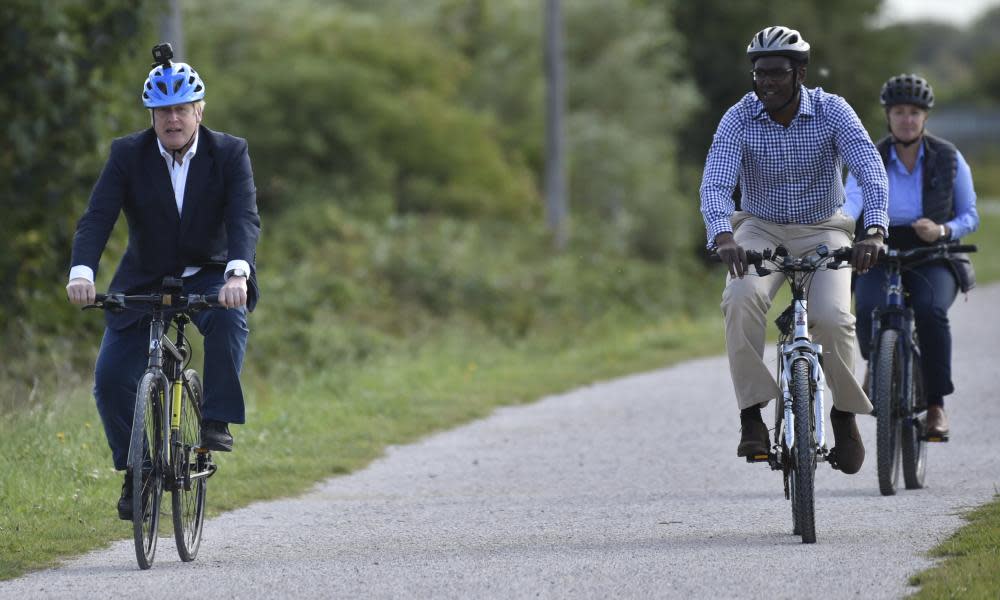Two-thirds of adults in England feel cycling is dangerous

The government has pledged to tackle safety fears about cycling after an official study revealed that two-thirds of people were worried about the dangers of riding on the roads.
Figures from the government’s National Travel Attitudes Study showed 66% of adults in England said it was “dangerous for me to cycle on the roads”, up from 61% a year before and the highest figure for more than a decade.
In an interview with the Guardian, Chris Heaton-Harris, the transport minister whose remit covers cycling, said plans for cycling and walking, spearheaded by Boris Johnson and announced last month, were intended to change this.
As part of the £2bn commitment, thousands of miles of protected bike lanes, as well as a regulator to stop councils building substandard cycling and walking infrastructure, will be introduced. There are also plans to allow residents to block through-traffic from residential streets.
Asked about people’s safety worries, Heaton-Harris said: “I know from talking to people, and looking at my very active cycling social media response, that dedicated infrastructure is essential to make people feel safe.
“One of the big parts of this investment is to try and make the streets safer for people to cycle on. I tend to believe that in cycling, it’s very much Kevin Costner, Field of Dreams territory: if you build it, they will come.”
The survey was conducted in January and February this year, before large number of people began riding bikes during the coronavirus lockdown.
This showed the latent demand for cycling, Heaton-Harris said: “When people feel safe, they cycle.”
Annual figures on cycling numbers, released at the same time as the safety survey, also showed that, at least pre-lockdown, they have barely increased in years, with the average number of bike trips per adult in England during 2019 being 17, as against 16 in 2015.
Heaton-Harris said he was confident that the new efforts would begin a long-term change towards more cycling, and consistent government support for this.
“I’d like to think with this investment over the next four or five years, we can actually demonstrate and have the data to prove that when we do the things we’re talking about, we will be able to demonstrate that that has led to way more people cycling,” he said.
“We can also show we are a healthier nation, that air quality has gone up and air pollution goes down, all of these big things lots of people have been campaigning for, are delivered by change in the modal shift towards cycling and walking, And then I think it’ll be a no-brainer for future governments.”
The change would, Heaton-Harris argued, play a key role in tackling health inequalities exposed by Covid-19, with studies showing obesity and inactive lifestyles are among the factors that can exacerbate its impact.
One element of the new cycling plans, the idea of helping GPs to prescribe cycling as a health measure for some patients, will be targeted at more deprived communities, which have faced particular problems from coronavirus.
Related: What do Highway Code proposals mean for pedestrians and cyclists?
This would also include funding for councils in these areas for changes such as separated bike lanes, low-traffic neighbourhoods and secure cycle parking, Heaton-Harris said.
“When I was first elected as an MP in 2010, I was lucky to go on the public accounts committee and the first report we did was about the difference in health outcomes up and down the country. It was shocking, eye-opening for me as a new member of parliament.
“I’m absolutely convinced that if this pilot works [GPs prescribing cycling in some areas], and I expect it to, and it’s targeted in the correct places with corrective interventions, we can make people a lot healthier. And all the evidence suggests that makes them less prone to Covid as well.”

 Yahoo News
Yahoo News 
